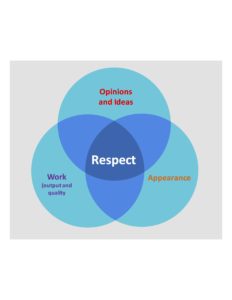 In the Spring of 1997, I was serving on active duty in the Navy, at the rank of Petty Officer First Class. As an enlisted guy, I didn’t fit the profile of most enlisted people. I had a Master of Arts degree in organizational leadership. Most enlisted people don’t. My goal was to eventually start my own consulting visit and I was on the fence regarding walking out of the Navy or sticking out the remaining 6 years until retirement.
In the Spring of 1997, I was serving on active duty in the Navy, at the rank of Petty Officer First Class. As an enlisted guy, I didn’t fit the profile of most enlisted people. I had a Master of Arts degree in organizational leadership. Most enlisted people don’t. My goal was to eventually start my own consulting visit and I was on the fence regarding walking out of the Navy or sticking out the remaining 6 years until retirement.
At the time, the Navy was implementing something called Total Quality Leadership. It was based on the principles of TQM and it was one of the few things that actually made sense to me that the Navy did. I threw myself into learning and implementing this and found myself actually working with the Executive Steering Committee (ESC) which was made up of all the senior officers at the command. Since my graduate degree, interest, and experience made me a perfect addition, I was sort of an adjunct member of the team, facilitating and training in the command.
Well that Spring, our command was on schedule for an IG inspection. These were conducted from our parent entity, BUMED and involved a bunch of inspectors crawling up our rear ends with a microscope. We were told that this year the IG was planning to inspect our strategic plan. My executive officer told me he needed my help. I was excited. This was my time to shine.
He brought me up to the briefing room where I thought he was going to ask me to speak to our strategic plan since I had done a lot of work on it. He said he needed me to sit right next to him. He said I had an important task. I was ready for my moment in the spotlight. I was felt confident. I even decided I would be reenlisting for sure.
And then he told me what I was going to do. He wanted me to be the one advancing his PowerPoint slides on the laptop. Every time he tapped the podium, I would hit the “N” key. I asked him if I would be speaking. He said no. When I asked why, he told me that nobody was interested in what I had to say. I was to ensure the laptop and slides were working properly.
And that was the day I officially quit the Navy. Yes I had a year or so left, but I mentally and emotionally quit that day.
I have never felt more disrespected in my entire life. Ever. And I never forgot about that.
Which brings us to you.
As The Boss, it’s important to know the definition of RESPECT. I define it as “being taken seriously.” It’s important to know because as The Boss you can easily disrespect one of your direct reports without even knowing it. And then they will quit. Just like I did.
There are three areas where people look for respect. These three areas are also where people give or don’t give respect:
- Appearance: How you show up each day.
- Opinions and Ideas: What creative suggestions you come up with.
- Work: The quality and output of what you get paid to do.
It’s a subtle thing. Here are three common, unintentional ways you can disrespect one of your direct reports:
- Appearance: “Are you sure you want to wear that into this meeting?”
- Opinions and Ideas: “Hmm. Good suggestion. Let me think about it” (and you never get back to them)
- Work: “Thanks. That’s just as good as Sally’s work.”
In each case (and by the way, each case here could be a legitimate response) the effort of the individual is subtly dismissed. And they may feel as if you’re not taking them seriously.
…which is the definition of disrespect.
So this week, just take some time to be more intentional with your responses.
And your worst case scenario would be that employee who felt you disrespected them, and they quit…and yet still work for you. Good luck with that.
